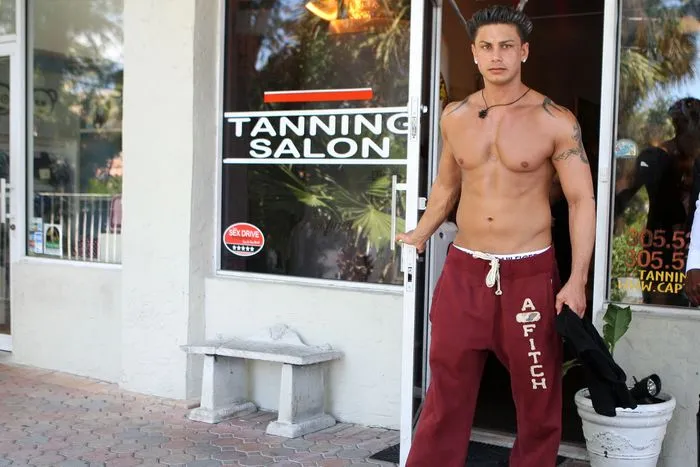The success of MTV’s “Jersey Shore” catapulted its cast into pop culture history, charming audiences with its addictive blend of sunny personalities and wild escapades. Recognizing the enduring affection for the show, MTV rebooted the series in 2018 with “Jersey Shore: Family Vacation,” bringing the original crew together in adulthood.
The revival series adopts a nostalgic tone, referencing the iconic moments and personalities of the original series while showcasing the cast’s evolution. While the reunion has resonated with audiences, its longevity has sparked debate.
Critics argue that the cast, now in their 30s and beyond, feels forced to relive their “Jersey Shore” days, leading to awkward and uncomfortable situations. The focus on nostalgia, while capturing the essence of the original, feels superficial and static.

A Still From Jersey Shore (Via IMDB)
Despite the awkwardness, “Jersey Shore: Family Vacation” provides a Look into the personal lives of the cast members. Viewers witness their struggles with adulthood, relationships, and personal growth. The tension between their youthful personas and their mature realities creates an underlying conflict in the show.
The series’ revival also reflects the fickle nature of fame and youth. While some cast members successfully transitioned into different endeavors, others remain anchored in the party-hungry image they cultivated on the original show. This dissonance can be discomforting for both viewers and the cast members themselves.
Ultimately, “Jersey Shore: Family Vacation” exists in a liminal space between nostalgia and maturity. While the reboot captures the essence of its predecessor, it fails to escape the awkwardness that comes with revisiting the past in adulthood. The show’s future remains uncertain, but its popularity indicates that MTV has found a lucrative niche in revisiting old favorites for contemporary audiences.
























